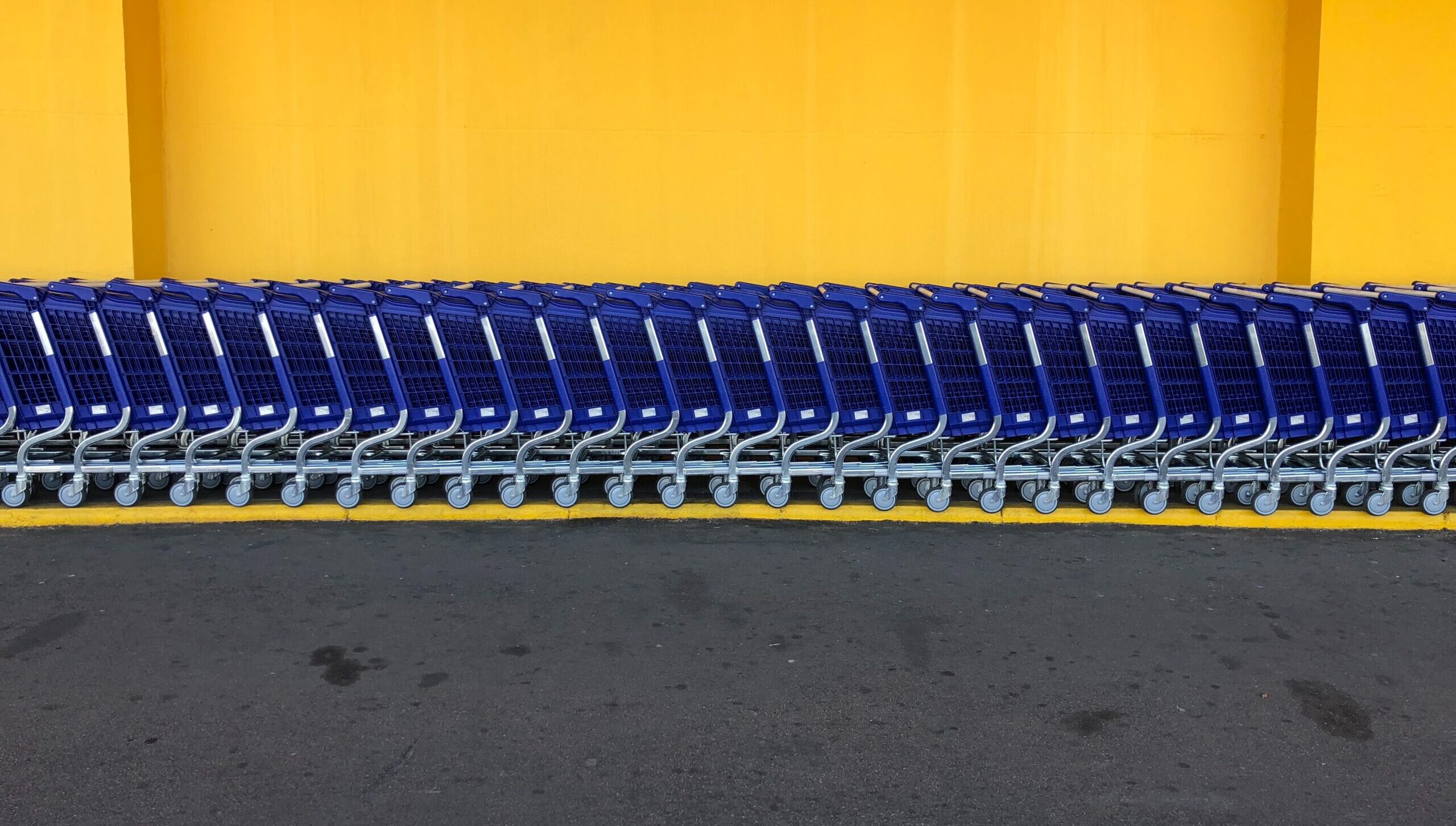A few years ago, I wrote a parody (of sorts) of John 4 (Jesus’ encounter with the woman at the well) called “Jesse and the Man at Walmart,” in which I attempt to help readers reimagine the story in today’s context. If Jesus were alive today and touring your city with his disciples, who might he choose to approach in order to illustrate how his Kingdom extends beyond what we like to Extending envision? The person I chose to represent the woman at the well is an undocumented day laborer standing outside a Walmart waiting for work.
Jesse was touring the city with his disciples Billy, Jerry, and Joel. One day he sent them into Walmart to get some food for their evangelistic swing. While they were gone, he met an undocumented man standing at the daylaborer corner eating some tacos and waiting for work. Jesse went to him and said, “Hola, amigo, can I have one of your tacos?”
The hombre looked down, then in broken English said, “Why are you talking to me, and why do you want some of my tacos? The only time your kind of people talk to us is when you want us to work for you. We stand on this corner and people laugh and spit at us. They call us ‘illegal’ and ‘wetbacks,’ so why do you now call me ‘amigo’? And now you want my tacos, señor?”
Jesse said, “If you knew who asked you for your taco, you would have asked me and I would have given you food that would give you eternal life.”
The hombre said, “Señor, are you feeling okay? You don’t have any food in your hand to give life. How can you give me food that will help me live forever? You need to get out of the sun, señor. We don’t need your invisible food.”
Jesse said, “If you would ask me, I would give life to you.”
The hombre no longer looked down but directly at Jesse. “Life? We don’t need the kind of life your people offer. We have holy rollers and hallelujah people come to this corner and talk to us all the time about eternal life. They tell us we need to go to their churches to get right with God. They tell us we should not be here, but then they take us to their home to cut the grass, take out their trash, and paint the walls. In their house they treat us like we are invisible, but we see what they are watching on TV and the kinds of magazines they are reading. Sometimes they get drunk and send us away without paying us. Is that the kind of life you are talking about?”
Jesse said, “Show me your green card.”
The hombre said, “I don’t have a green card.”
Jesse responded, “You have said well you don’t have a green card. You have come to this country illegally five times.”
“Señor, are you a curandero? We are so confused about religion and where we should go to church. Los Americanos tell us to go to their churches but then they treat us like we are basura. Some of their radio evangelists call us thieves and criminals, and then they want us to convert and go to their church. We are crying out to God because we live in fear. We are only here to help feed our families and live a quiet life.”
Jesse said, “I came that you might have life and have it abundantly. If you come to me, I will save you and guide you. I know your pain. I was an immigrant in a foreign land as a child. I was rejected by my own religious people. I have overcome. I can feed you. I can give you true security. I can make your load light. I can give you real eternal life.”
At that the undocumented hombre dropped his taco, saw Jesse as the Savior, and ran to tell his compañeros that he had found the Son of Mary and Joseph of the Bible on the corner at Walmart.
Billy, Jerry, and Joel came out of Walmart and saw Jesse talking to the man. They said, “Why are you talking to this man? They shouldn’t even be here. You might be breaking the law just by talking to them. This is bad for our public relations.”
Jesse said, “I have public relationships you have no knowledge about.” (Joel wondered, Did he find a PR agent we don’t know about?)
About that time a large group of people were coming around the side of the Walmart when Jesse said to the disciples, “Lift up your eyes and see the people who are made in my image. This is what the Great Commission is all about. Sometimes a little compassion opens doors for the Good News in ways no seminary training or PR will ever get you. If you want to reach people for the gospel, you are going to have to talk to the lawbreakers. You were once lawbreaking sinners. Quit looking down on them! Turn off the TV and radio talk show hosts and get a life. I came to seek and save the sick and not the healthy.”
The people all sat around Jesse, and he gave them the food the disciples had bought and taught them about security, peace, and eternal life. They put their trust in Jesse and invited him to their barrio. They shared with him their chorizo, menudo, tortillas, and homemade salsa (not the fake stuff they sell at Walmart). Then Jesse healed all the people that were brought to him.
My purpose for including this parody is not to talk about the politics surrounding undocumented immigrants. (Also, remember that not all undocumented immigrants are from Latin America. I simply use them in my story because this is closest to my context as a Latino from South Texas.) My desire is to illustrate two points.
The first is that Jesus loves, saves, equips, and sends everyone, even the most marginalized in our societies. In the United States, as well as other countries around the world, undocumented immigrants represent a group of marginalized people who are looked down upon uniquely because of their immigration status. I tend to notice a visceral response from majority-culture Christians when the topic of undocumented immigrants comes up, as if they are an exception to the “love your neighbor” mandate because of the fact that they broke the law. When I share this parody at Christian conferences, some members of the crowd get visibly uncomfortable. This is exactly why I like to share it. Jesus illustrated to his disciples in John 4 that he sees beyond what our cultural conventions teach us. Jesus’ mission was to love and give life to everyone, especially those deemed by society as unworthy. Replacing the Samaritan woman with an undocumented immigrant in today’s context causes us to confront our deepest biases and think about what sins we need to repent of in order to get on mission with God.
The second point I want to illustrate is the impact of proximity. One of the main learning points of John 4 is how Jesus initiated a conversation that should have never happened, since Jews and Samaritans did not associate with one another. But after the woman’s conversion, Scripture tells us that many Samaritans believed in him. In fact, they urged him to stay with them, and he stayed for two days. Jesus was setting an example for his disciples in how fulfilling his mission requires breaking down ethnic and cultural barriers. Proximity is the most effective way to do that. Looking people in the eye and sharing the pain and issues of life changes how we see one another. The parody urges us to apply John 4 to today’s context and think about undocumented immigrants as people made in the image of God—but the lesson can be applied to any person society views as “other.” It is not “us” versus “them.” We are all one body, imperfect as we are. Brothers and sisters, may we all have the courage to initiate relationships with people we’ve been taught to avoid. God will work in transformative ways.



Loved this.